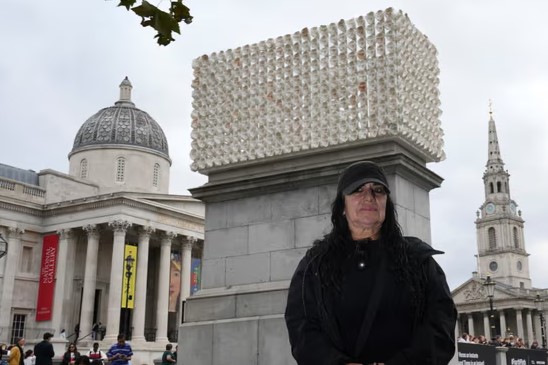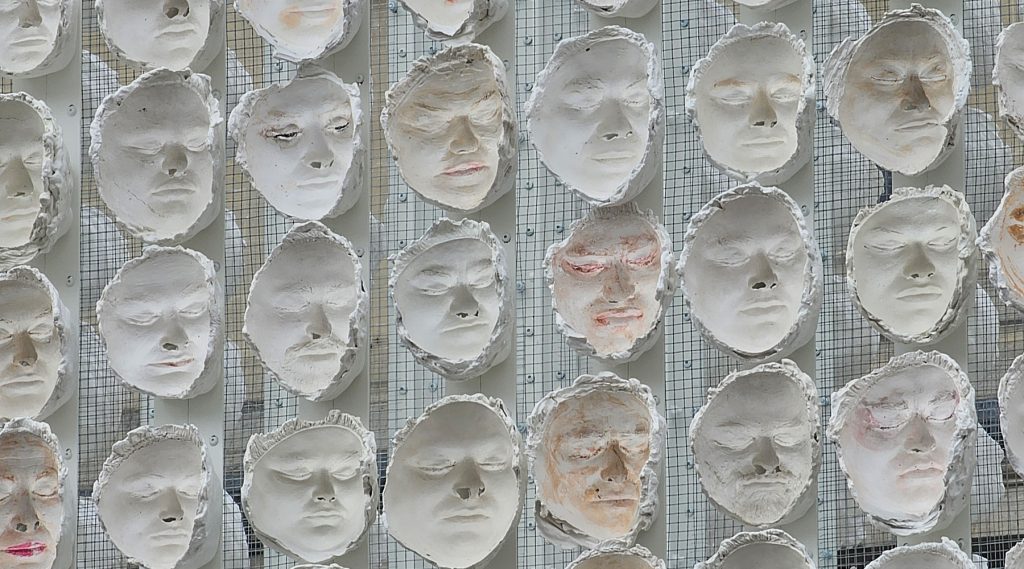
The latest installation on Trafalgar Square’s Fourth Plinth in London, 850 Improntas, has been revealed, featuring hundreds of plaster casts of transgender and non-binary individuals. The work, created by Mexican artist Teresa Margolles, aims to highlight marginalized communities through a striking and personal medium.
850 Improntas, which translates to 850 Imprints, consists of casts made by applying plaster directly onto the faces of models. Many of these individuals are sex workers, with the casting process capturing their hair and skin cells. The casts are arranged on the plinth in the form of a tzompantli, a skull rack used by Mesoamerican civilizations to display the remains of captives or sacrificial victims.
Margolles, known for her work that explores the social and aesthetic dimensions of conflict, said the piece draws attention to a community often overlooked, both in Mexico and around the world. “This work recognizes a group that has been pushed to the margins,” Margolles said in a statement.

The Fourth Plinth was originally built in 1841 to hold a statue of William IV, though it remained empty due to lack of funds. Since 1999, it has been home to a series of temporary artworks by prominent artists, including David Shrigley, Rachel Whiteread, and Antony Gormley.
The installation also serves as a contrast to the other three plinths around Trafalgar Square, which feature statues of George IV and 19th-century military figures Charles James Napier and Henry Havelock, who were key figures in Britain’s colonial expansion in India.
Margolles, who trained as a forensic pathologist and worked as a mortician in Mexico City, often uses her art to investigate death and violence. Much of her earlier work was influenced by the nameless victims of drug-trafficking violence in Mexico, whose bodies passed through the morgue where she worked.
This new installation is expected to spark conversation on social justice and representation in public art, while adding another chapter to the Fourth Plinth’s role as a space for thought-provoking works.
Be the first to comment